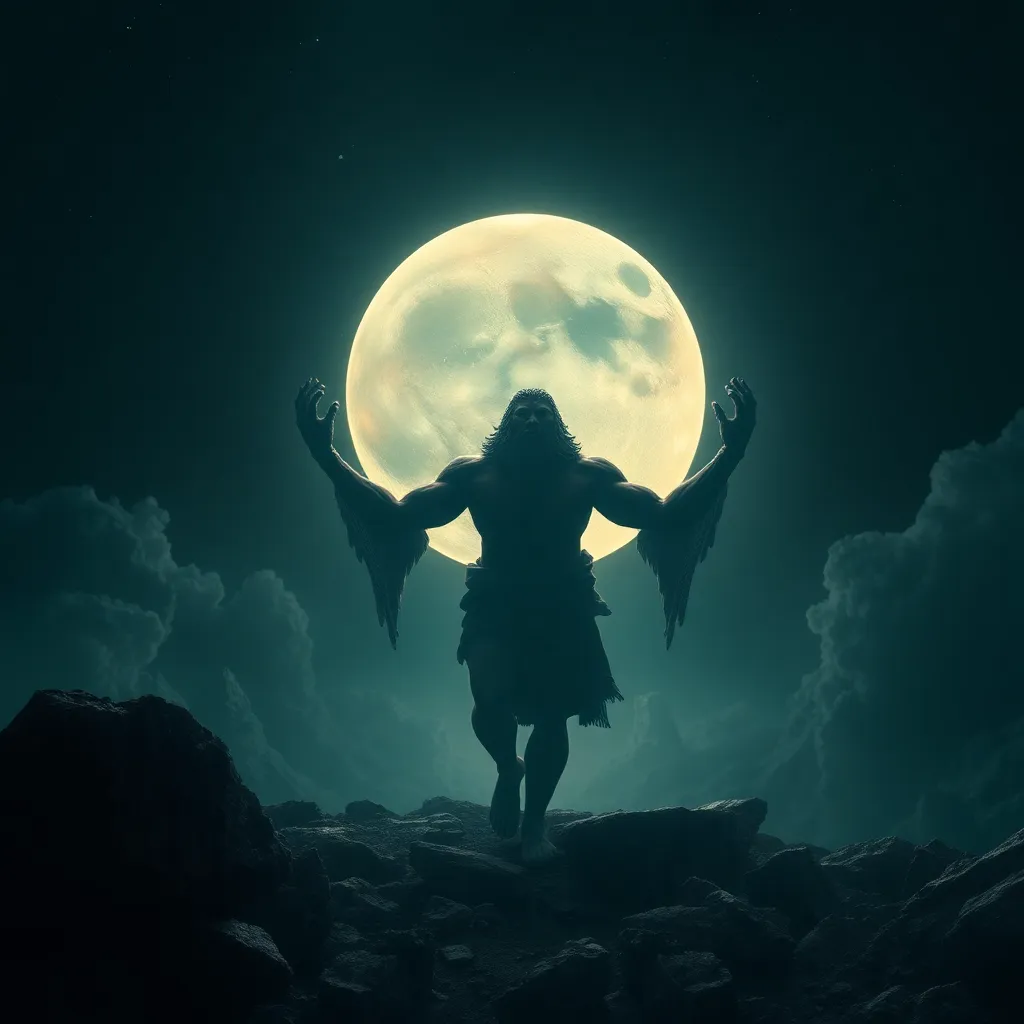The Cyclops’ Curse: How Myths Reflect Human Fears
I. Introduction
The myth of the Cyclops, particularly as depicted in Homer’s “Odyssey,” stands as a significant narrative within Greek mythology that explores themes of fear, power, and the unknown. The Cyclops, a one-eyed giant, is not merely a creature of terror but a representation of humanity’s deepest anxieties. This article aims to explore how myths, particularly the Cyclops’ tale, mirror human fears and reflect our struggles with isolation, powerlessness, and the unknown.
Myths serve as powerful tools that encapsulate human emotions and experiences, and the Cyclops myth is no exception. Through the lens of this myth, we can gain insights into our vulnerabilities and the universal fears that persist across time and culture. Thus, this exploration will illustrate that myths like the Cyclops’ tale illuminate deep-seated human anxieties about isolation, powerlessness, and the unknown.
II. The Cyclops: A Symbol of Fear
The Cyclops, often described as brutish and solitary, serves as a potent symbol of fear in mythology. These creatures are depicted as large, strong beings with a single eye in the center of their foreheads. Their physical traits evoke immediate feelings of dread:
- Size: The immense stature of the Cyclops represents overwhelming power that can instill fear in even the bravest of heroes.
- Singularity: The singular eye symbolizes a narrow perspective, reinforcing themes of ignorance and lack of foresight.
As embodiments of uncontrollable forces, Cyclopes reflect humanity’s primal fears—fear of the monstrous, the unknown, and the untamed aspects of nature. They stand as reminders of the chaos lurking beneath the surface of civilization.
III. Isolation and the Human Condition
Isolation is a central theme in the Cyclops myth. Polyphemus, the most famous Cyclops, lives alone on a remote island, cut off from the rest of the world. This solitude mirrors modern fears of loneliness and disconnection in contemporary society.
The psychological implications of isolation are significant. Research shows that prolonged isolation can lead to various mental health issues, including depression and anxiety. Across cultures, the fear of being alone resonates deeply:
- In many societies, community and social bonds are paramount, and isolation is viewed as a dire circumstance.
- Literature and art often depict isolation as a catalyst for despair, showcasing the struggles individuals face when cut off from social interaction.
The Cyclops, in his isolated existence, exemplifies this fear of loneliness, prompting reflections on our connections with others and the vulnerabilities that arise when those connections are severed.
IV. Powerlessness Against Greater Forces
Odysseus’ encounter with the Cyclops serves as a metaphor for vulnerability in the face of greater forces. When Odysseus and his men find themselves trapped in Polyphemus’s cave, they are at the mercy of the giant’s whims. This moment illustrates the fragility of human strength against overwhelming power.
Historically, myths reflect societal concerns about power dynamics. The Cyclops can be seen as a representation of tyrannical rulers or natural disasters that humans cannot control. In contemporary society, feelings of powerlessness often emerge in various forms:
- Political unrest and the feeling of being voiceless in the face of authority.
- Environmental crises that leave individuals feeling helpless against nature’s wrath.
These parallels highlight the enduring relevance of the Cyclops myth, as it encapsulates the existential fears we face when confronted with forces beyond our control.
V. The Unknown and the Unfathomable
The Cyclops also embodies the fear of the unknown. Odysseus and his crew enter the Cyclops’ cave out of curiosity, only to find themselves in a perilous situation. This encounter illustrates humanity’s inherent anxiety toward the unfamiliar and the dangers that lie within it.
Mythical creatures, such as the Cyclops, often symbolize the unknown aspects of existence that provoke fear. These fears can manifest in modern contexts:
- The rapid advancement of technology—many fear what the future holds and how it may alter human life.
- Environmental changes that challenge our understanding of nature and its limits.
The Cyclops serves as a reminder of the primal fears associated with venturing into the unknown and the potential consequences of such explorations.
VI. Cultural Interpretations of the Cyclops Myth
The Cyclops myth has various interpretations across different cultures. In Greek mythology, Polyphemus is the most recognized, but similar one-eyed giants appear in other traditions:
- In Hindu mythology, the demon Ravana is sometimes depicted with multiple heads, symbolizing the multifaceted nature of power and fear.
- In Celtic folklore, giants often embody the chaotic forces of nature, paralleling the Cyclops’ representation of uncontrollable power.
These interpretations reflect unique societal fears and values, demonstrating the adaptability of the Cyclops narrative. The enduring legacy of the Cyclops has influenced contemporary storytelling, appearing in literature, films, and art, where it continues to resonate with audiences.
VII. The Role of Myths in Coping with Fear
Myths serve as a means to confront and understand fears, offering frameworks for individuals and communities to navigate their anxieties. The therapeutic aspects of storytelling allow people to process their experiences and emotions. The Cyclops myth, in particular, provides valuable lessons:
- It encourages reflection on personal vulnerabilities and the importance of courage in confronting fears.
- It fosters communal bonds by sharing narratives that resonate across generations.
Through these narratives, individuals can find solace and understanding, transforming fear into a shared human experience that promotes resilience.
VIII. Conclusion
The Cyclops myth encapsulates profound aspects of the human experience, representing fears of isolation, powerlessness, and the unknown. As we reflect on the relevance of these themes in today’s context, it becomes clear that mythology continues to offer insights into our struggles and anxieties.
Ultimately, the enduring power of myths like the Cyclops’ tale lies in their ability to address universal human experiences, reminding us that we are not alone in our fears and that through understanding, we can find strength.




